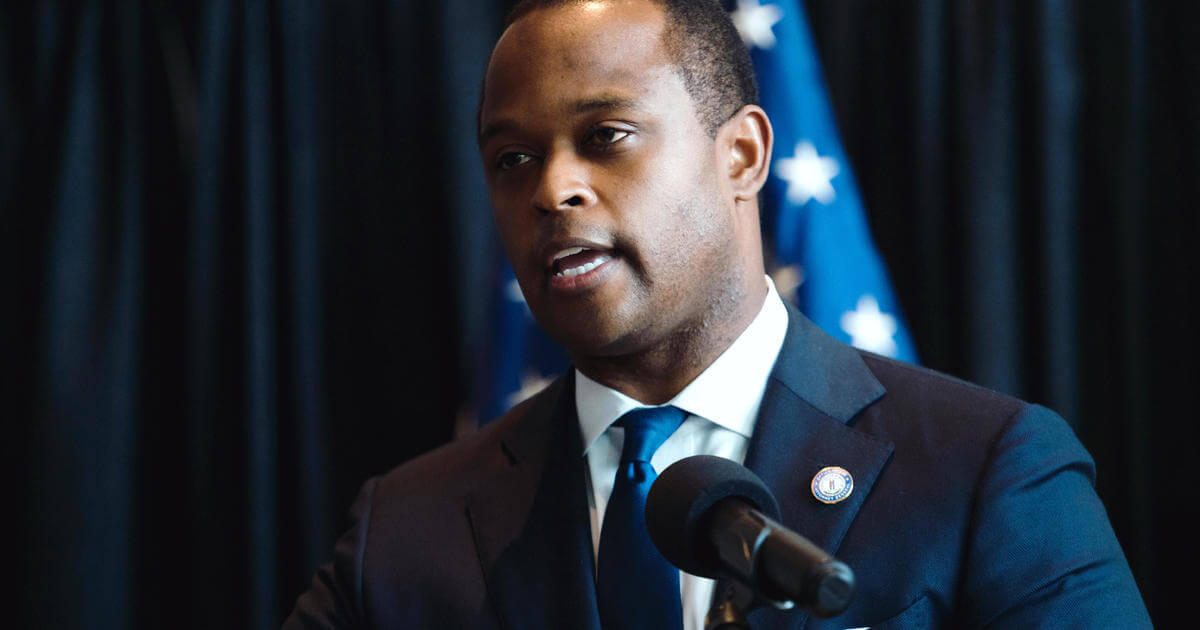
Breonna Taylor grand juror says jury ‘didn’t agree that certain actions were justified’
A member of the grand jury in the Breonna Taylor case said the jury was not given the opportunity to deliberate charges outside of the wanton endangerment counts they were presented.
The juror received permission from a judge to publicly speak about the case Tuesday, according to WAND sister station WDRB. In the March 13, 2020 shooting, Taylor was shot and killed when police entered her apartment while serving a narcotics warrant.
Police had been investigating her ex-boyfriend, Jamarcus Glover, for alleged drug activity. Officers entered the home with a battering ram before Taylor’s boyfriend, Kenneth Walker, fired once. Police returned fire, striking Taylor in her bed.
The grand juror said Attorney General Daniel Cameron’s office only presented wanton endangerment charges against former Det. Brett Hankison, who is accused of shooting into another apartment. Hankison was indicted on those charges and was the only officer charged out of three.
“Questions were asked about additional charges and the grand jury was told there would be none because the prosecutors didn’t feel they could make them stick,” said a grand juror statement, which was released by attorney Kevin Glogower.
The statement went on to say jurors “did not have any homicide offenses explained to them.” The juror said the jury “never heard about those laws” and added “self defense or justification was never explained either.”
“The grand jury didn’t agree that certain actions were justified, not did it decide the indictment should be the only charges in the Breonna Taylor case,” the juror said. “The grand jury was not given the opportunity to deliberate on those charges and deliberated only on what was presented to them. I can’t speak for other jurors but I can help the truth be told.”
The ruling to allow jurors to speak about proceedings that are typically secret came from Jefferson Circuit Court Judge Annie O’Connell.
“This is a rare and extraordinary example of a case where, at the time this motion is made, the historical reasons for preserving grand jury secrecy are null,” O’Connell said.
Her order is not meant to encourage other jurors involved in the September meeting to come forward. She said it instead “merely grants one grand juror’s request to do so and gives others the option.” She added no one juror speaks for others and “nor does one’s statement carry any more weight than another’s.”
For grand jurors who decide to put out their identity, O’Connell said this should be done “with extreme caution, for to do so may result in a level of public attention and scrutiny over which this Court will have no control.”
Cameron’s office had argued the grand juror’s request to speak would violate oaths of secrecy. They had asked the judge to issue a “stay,” which would have given his office time to appeal if she allowed the juror to talk . There was no mention of a delay for an appeal in O’Connell’s ruling, WDRB said.
In her ruling to allow juror commentary, O’Connell pointed out Hankinson is not a threat to escape, the officers involved in serving the warrant were already publicly identified and the judge presiding over the criminal case of one of the officers had ordered the public release of grand jury testimony. She said typical reasons for keeping a grand juror for speaking were no longer relevant in the Taylor case.

